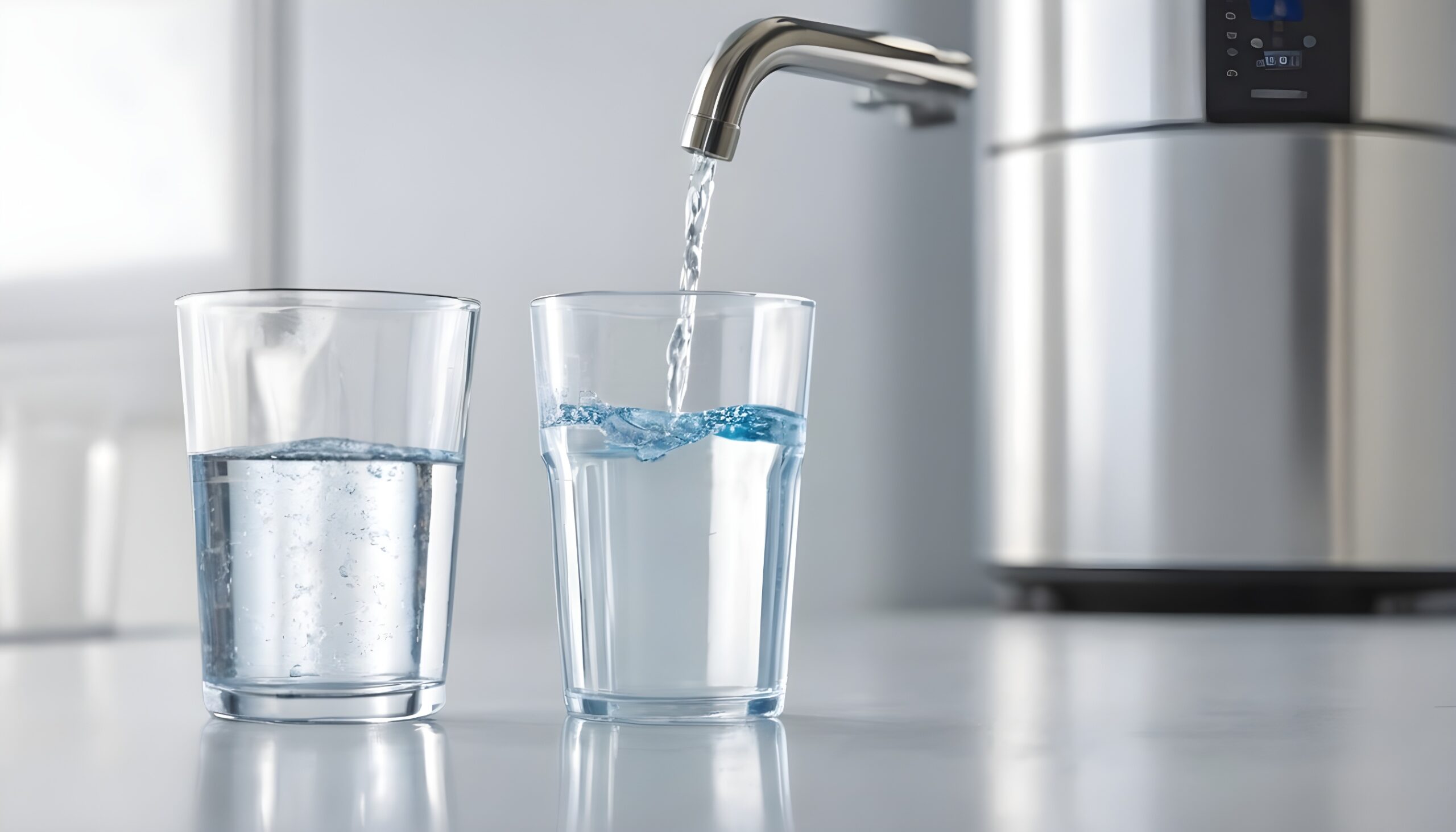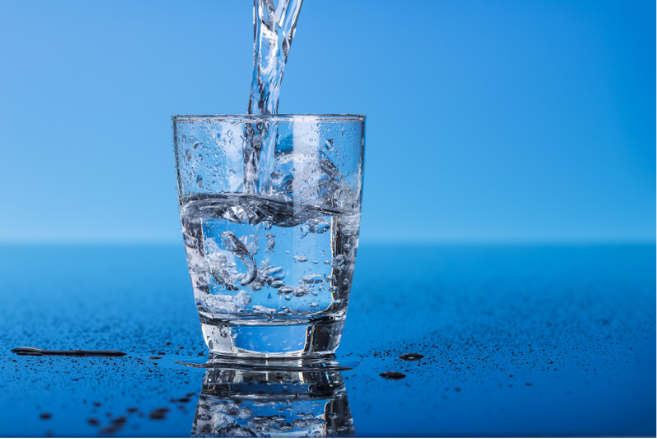Save Money and Protect Health with a Water Purification System
Save Money and Protect Health with a Water Purification System
Blog Article
Why a Water Purification System Is Important for Clean, Safe Water
Access to tidy, safe water is a fundamental human right and a foundation of public health and wellness. The presence of damaging impurities such as microorganisms, heavy metals, and chemical pollutants in our water supply increases significant issues about health and wellness and well-being. A water filtration system stands as a crucial service to reduce these threats, ensuring that individuals and areas can access risk-free drinking water. Comprehending the complexities of these systems and their various techniques is important, especially as we consider the effects for health and wellness results and ecological sustainability in our every day lives.
Relevance of Clean Water
Access to clean water is a basic need for human health and wellness and well-being. It is essential for maintaining life, supporting hygiene, and keeping overall public health and wellness. Water Purification System. The availability of safe alcohol consumption water dramatically lowers the danger of waterborne conditions, which position a considerable risk to neighborhoods worldwide. Contaminated water can lead to major health concerns, consisting of intestinal illnesses, cholera, and dysentery, especially in susceptible populaces such as kids and the senior.
In addition, tidy water is crucial for sanitation and hygiene techniques, which are vital in protecting against the spread of transmittable diseases. Sufficient water system supports correct hygiene facilities, advertising a much healthier setting. In addition, accessibility to risk-free water influences socioeconomic elements, as it makes it possible for areas to involve in industrial and farming tasks, inevitably contributing to economic advancement.
In lots of areas, the lack of clean water worsens hardship and inequality, further preventing development towards lasting development goals. Ensuring access to tidy water is not only a public wellness crucial yet also a cornerstone for social equity and economic growth. Initiatives to enhance water high quality and facilities have far-ranging advantages, promoting much healthier neighborhoods and improving high quality of life.

Usual Contaminants in Water
Making sure the availability of clean water is undermined by numerous pollutants that can endanger its safety and security and top quality. The presence of microorganisms, such as germs, infections, and parasites, presents significant health threats, especially in areas doing not have appropriate sanitation. These microorganisms can cause waterborne conditions, leading to extreme health problem and even fatality.
Chemical impurities also offer a critical issue. Hefty metals, consisting of mercury, lead, and arsenic, frequently enter water products via industrial discharges or rusty plumbing. These compounds can build up in the body in time, causing long-term wellness concerns such as neurological damages and developing disorders.
In addition, farming overflow introduces chemicals and fertilizers into water supply, which can interrupt communities and adversely impact human health. Nitrates, generally located in fertilizers, can trigger serious conditions like methemoglobinemia, particularly in infants.
Benefits of Water Purification Systems
Acknowledging the crucial demand for safe alcohol consumption water, water filtration systems use a myriad of advantages that boost public wellness and ecological sustainability. Largely, these systems effectively remove harmful impurities, consisting of microorganisms, viruses, heavy steels, and chemicals, making sure that the water eaten is complimentary from microorganisms and toxins. This decrease in pollutants considerably lowers the threat of waterborne diseases, advertising total community wellness.
Along with health advantages, water filtration systems add to ecological sustainability by minimizing dependence on mineral water, which frequently creates excessive plastic waste. By utilizing a purification system, homes can decrease their carbon footprint and add to an extra sustainable community. These systems can improve the taste and smell of water, making it extra tasty for everyday usage.

Various Sorts Of Filtration Approaches

One usual approach is reverse osmosis, which makes use of a semi-permeable membrane layer to separate water from liquified impurities and solids. This process efficiently lowers impurities, including hefty metals and chemicals. An additional commonly made use of method is ultraviolet (UV) sanitation, which uses UV light to neutralize germs and infections, making them harmless without making use of chemicals.
Turned on carbon filtration is an additional prominent strategy, making use of carbon to adsorb natural substances, chlorine, and undesirable odors, enhancing taste and smell high quality. Purification, a procedure that includes boiling water and condensing the vapor, successfully removes minerals and impurities but might call for more power contrasted to various other techniques.
Ion exchange is commonly used to soften water by changing calcium and magnesium advice ions with sodium or potassium ions. Each approach has its limitations and benefits, making it important to understand their capabilities and effectiveness in attending to specific water high quality concerns - Water Purification System. Eventually, selecting the proper filtration method is vital for making sure risk-free and tidy alcohol consumption water
Picking the Right System
Choosing a proper water filtration system requires mindful consideration of numerous elements, including the details impurities present in the water supply, the quantity of water required, and the preferred filtration approach. It is crucial to carry out a water quality test to determine pollutants such as bacteria, hefty metals, or chemical toxins. This details will certainly assist you in picking a system that effectively targets those specific pollutants.
Following, analyze your home's everyday water intake to determine the system's capability. Solutions are readily available in numerous dimensions, from point-of-use filters for alcohol consumption water to whole-house devices that cleanse all water entering your home.
Additionally, think about the purification technique that ideal fits your requirements. As an example, reverse osmosis is highly reliable for getting rid of a vast array of impurities, while UV filtration is superb for getting rid of microorganisms.
Conclusion
To conclude, the application of water filtration systems is critical for making certain access to risk-free and clean water. These systems efficiently remove unsafe pollutants, therefore decreasing the risk of waterborne diseases and enhancing public wellness. Furthermore, they add to ecological sustainability by reducing dependence on mineral water. By comprehending the value of tidy water and the advantages of different filtration techniques, areas can make enlightened decisions to guard their wellness and advertise socioeconomic security.
Recognizing the crucial requirement for secure drinking water, water purification systems provide a myriad of advantages that enhance public health and environmental sustainability.In addition to health benefits, water filtration systems contribute to environmental sustainability by reducing dependence on bottled water, which typically generates extreme over here plastic waste. Inevitably, the fostering of water purification systems is a proactive step toward ensuring clean, secure water for future generations while guarding public health and the atmosphere.
Picking a proper water purification system calls for careful consideration of various aspects, including the certain contaminants existing in the water supply, the volume of water required, and the preferred purification method.In verdict, the application of water filtration systems is crucial for making certain access to risk-free and tidy water.
Report this page